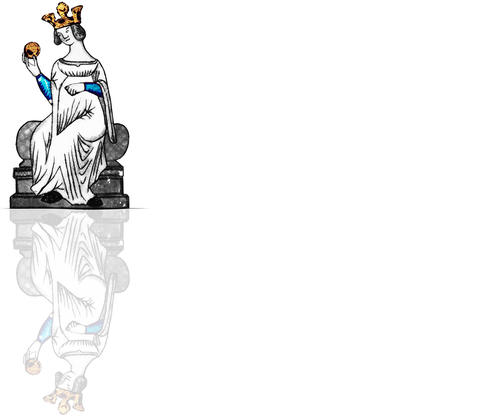Prospects of Decay: Reflecting on the Decadence of Taste in Eighteenth-Century Britain and France
Workshop with Jessica Stacey (Marie Skłodowska Curie Fellow, Freie Universität Berlin) and Alexander Wragge-Morley (Lancaster University)
01.02.2024
Taste was immensely important to authors of the eighteenth century, comprising moral, aesthetic, political and increasingly also biological aspects. The matter of taste linked willed action (the cultivation of taste) and involuntary processes (whether biological or historical). The discourses on taste and its impending decay in eighteenth-century Britain and France thus constitute a broad field of knowledge transfer, as examined in this workshop.
Alexander Wragge-Morley's paper approached the question of decadent taste obliquely, addressing the broad arena of transformation (progressive, degenerative, or neutral) through practice or habit. Through an examination of medical and philosophical sources, the paper revealed the extent to which habit was understood as a physical process of repeated action on the body, particularly the nervous system and the heart. Dispositions as diverse as sickness and health; the cycle of monthly menstruation; the ability to distinguish between the artistic nude and a naked woman; and one's personal morality, could be understood as habitual, and materially grounded. This complicated the relationship of phenomena such as taste and ethics to such entities as conscious volition, or the soul. The implications of the most far-reaching claims for the power of habit have, further, potentially fascinating consequences for that vexed object of eighteenth-century thought: human nature.
The way in which physical processes of decay furnished a library of metaphors to the discussion of decadent taste was the subject of Jessica Stacey's paper. One such metaphor, present in French and related literatures since the Medieval period but particularly lively in the eighteenth century, was that of rusty language as a feature of bad poetry. We learned that rust, as a distorting substance which accretes over time, could be used to name medieval French cultural productions judged unrecoverable by the present, as well as contemporary ways of speaking which arbiters of taste wished to code as pre-modern, or otherwise "out of time". Situating rust in relation to other recurrent metaphors for the transformation of poetic language over time (crumbling edifices, plants to be tended, wild beasts to be tamed), the paper sought to show how "rust" became a favoured metaphor through which to express the relationship between decadence and barbarism, which was contested over the course of the eighteenth century, with the latter at times being invested with rejuvenating power.
In the final paper, Martin Urmann pursued this discussion of metaphor, returning to the ambiguous physical/spiritual entity of the heart. "Heart" was a bulwark against the decadence of taste in submissions to eighteenth-century prize contests. The wide range of participants who submitted essays responding to the questions posed by academies rarely valorised such famous emerging aesthetic programs as the sublime. They proved more concerned with preserving taste by following the direction of the heart to steer a course avoiding affectedness on the one hand, and extravagance on the other. If the theoretical commitments of the prize contest entrants were less thoroughly worked out by their proponents than by the doctors and philosophers encountered in the first paper, a resonance might be felt in the ethical valorisation of the way in which an individual regulates their own heart, as the source of their aesthetic production. One of the lessons to emerge from the workshop was perhaps that literal and metaphorical deployments of particular entities are not always, in this period, evident as such.
